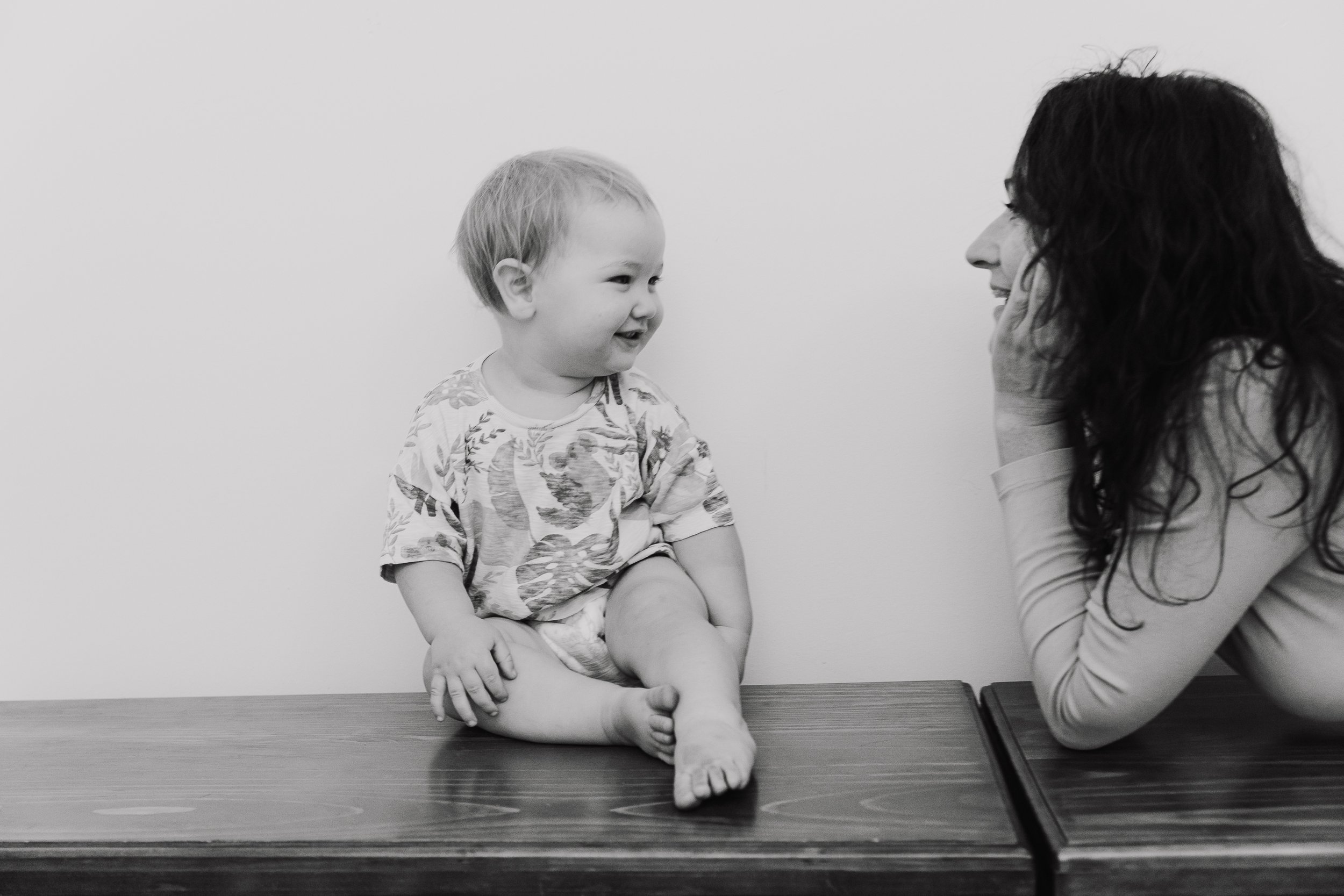PARENTHOOD & THE MENTAL LOAD
MOVEMENTS & MOMENTS
Balancing the Days
for the Benefit of the Years
Empowering Ourselves to Streamline the Journey of Parenthood
Parenting is a beautiful journey filled with love and endless responsibilities. Alongside the joy of raising a children, one parent more-often-than-not carries the majority of the mental load of family planning and daily life management. It can be excessive and overwhelming, often leaving little time for self-care and personal fulfilment.
However, there are strategies that can help the primary parent regain a sense of balance in their lives, while ensuring the wellbeing of their families.
When I became a mother I had little to no expectations on how I would personally navigate the practical aspects of raising a child. Like many parents I assumed the day-to-day would continue as it always had and would (after a short readjustment), work itself out. And to a certain extent it did: certainly by not actively pursuing a structure or a strategy, one emerged for me.
At the time, I was running quite a large studio business with multiple teachers, practitioners and students. We had just launched The Yoga Centre and although I had lots of staff to take on classes and administration jobs, I underestimated how much support the team would need from me as the owner of the studios.
So in the early years of my parenting the daily tasks of life plus the commitments of work were just juggled on the go. This appealed to my creative personality but in those first few months there was a persistent notion of having to keep everything moving ~ juggling and never dropping anything ~ this created a huge pressure to seamlessly maintain every single aspect of work, parenting and relationships.
Since having my daughter, motherhood has always been my first love and priority, and after the initial changes that come with having a child, I decided that it was unequivocally important to me that I spend as much of my time being present in parenting while also maintaining a business. My general passion for editing enabled me to treat my daily life as a project to streamline; in my life I really enjoy the process of assessment and re-assessment, of creating and maintaining habits and strategies. Over the years with my daughter this process supported me to successfully run a business and maintain my health while prioritising parenting.
By the time my daughter was finishing kindy and preparing for school I had perfected my own daily and weekly systems to a level that felt so enjoyable, manageable and relaxed. I had ensured my days included a lot of quality time with my child, my work was no longer overwhelming and I was able to juggle the work/life balance in a way that was fulfilling for me and my personal needs.
In my daughters first year of school I was pregnant with my son, with my first child in school the addition of a newborn was an easier transition than perhaps having a toddler with a baby. However, this aside, when my son was born ~ the newborn phase was really enjoyable. I didn’t feel unprepared, tired or depleted. The reason for this, I believe, was attributed to three main things:
my physical health and my ability to prioritise my health daily
the systems and strategies already in place
the new systems I was able to create, or pivot into, without overwhelm or obstruction
The strategies I’ve assimilated into my lifestyle have evolved over many years, and its important to always be adaptable to changing the systems as your lifestyle evolves. If you create great systems that are enjoyable and streamlined it becomes easier to add to these, or overhaul them completely, as your family grows.
There is so much I want to share on this topic and my personal process, I’ve created a workbook with more information and practical guidelines on how you can begin editing your lifestyle into a beautiful and enjoyable journey.
Perhaps if this topic is overwhelming or even if its something that you sense is important but you’re not sure how it could apply to you, below are listed the main areas to begin addressing. These tips are relevant to partnered relationships of any gender, are very useful for co-parenting arrangements ~ with many points applicable to solo parents as well.
COMMUNICATE OPENLY
Start by having an open conversation with immediate and extended family about the mental load. Communicating feelings and challenges is the beginning of the process of delegating tasks and redistributing responsibilities. These conversations need to be small and often without expectations. Often raising these issues will be met with resistance or defensiveness so please be prepared for some push-back. One resource to begin or maintain this conversation is the FAIR PLAY books and cards.
DELEGATE RESPONSIBILITIES
Identify tasks that can be shared and allocate them to other family members. This in itself is still a job to manage, but it’s a start to creating more space in family life. Encourage your partner, extended family and/or children to take on age-appropriate chores and responsibilities. Remember that perfection is not the goal; it's about sharing the load and fostering a sense of collective responsibility within the collective.
CREATE A SHARED CALENDAR:
Utilise technology (we use an Family Calendar app), or a physical worksheet/calendar to create a centralised system that tracks family commitments, appointments, and important dates. Encourage your family members to add their own events and tasks to the calendar, ensuring everyone stays informed and accountable. This practice helps alleviate the mental burden of remembering everything but it also sustains accountability for all parties.
ROUTINES & SCHEDULES:
Even as a highly creative person who prefers to be spontaneous with social commitments and holiday time ~ Implementing consistent routines and schedules creates order and efficiency to daily life. A routine that outlines regular activities such as morning tasks, meal times, bedtime rituals, and household chores will maintain consistency. This way, everyone in the family is in the same rhythm and understands what is expected, thus lightening the mental load on one person.
SIMPLIFY MEAL PLANNING:
Meal planning can be a significant source of overload. Simplify this process as much as possible. Consider creating a weekly rotation of meals on auto-pilot and batch cooking on weekends or using meal kits to save time and ensure a variety of nutritious meals. There are lots of online resources to support healthy eating.
PRIORITISE SELF-CARE:
Taking care of your own wellbeing is a non-negotiable. Carve out regular time for yourself daily. Engage in activities that recharge you, initially this might be a simple as reading a book, going for a walk, or practicing meditation. As you and your family begin to understand the benefits of your self-care being a priority allow this aspect of your life to expand. Dedicated time for yourself each week will replenish your energy and maintain a positive mindset.
EMBRACE TECHNOLOGY & TOOLS:
Leverage technology to streamline household tasks and reduce the mental load. Utilise apps and digital tools for grocery shopping, meal planning, and household organisation. Examples include ~ timing the clothes washing overnight, automated robot vacuuming and mopping for floors, grocery delivery on a schedule, other household items on subscription delivery.
SUPPORTIVE NETWORKS:
Friends, family, and community resources can provide social and emotional support. Connect with other parents experiencing similar challenges and create a support system where you can share advice, vent, and offer mutual encouragement. Perhaps share childcare or group holidays to support each others parenting ~ this is a positive experience for children as well.
By effectively delegating responsibilities, streamlining household tasks, and practicing self-care, the primary parent can regain balance, reduce stress, and nurture their own wellbeing. Remember, we are not alone, and it's essential to cultivate an environment where the mental load is shared among family members (including children to a reasonable extent), allowing every individual to thrive and enjoy the journey together.
I’ve created more practical strategies and systems for you in the workbook, as something I am passionate about I hope this helps individuals and families to reduce stress and overwhelm while gaining balance, autonomy and ultimately experiencing more joy each day.

